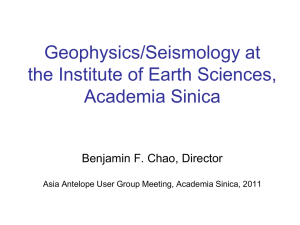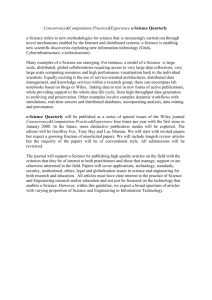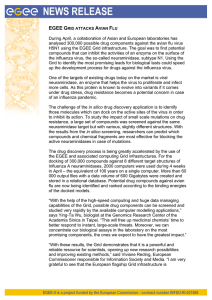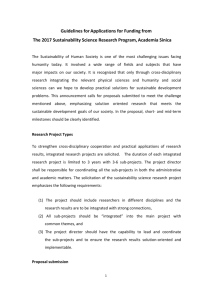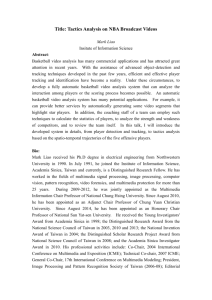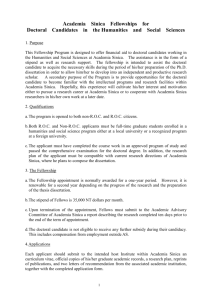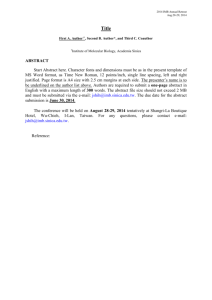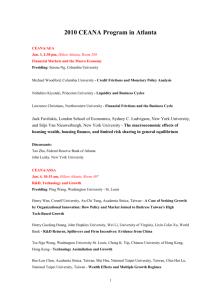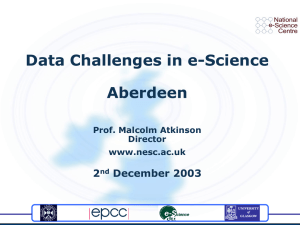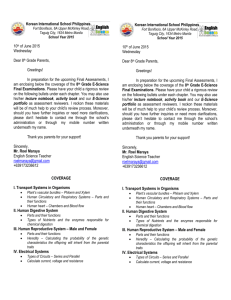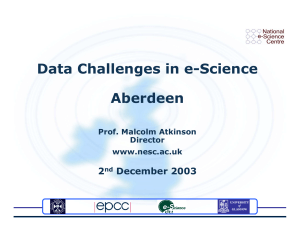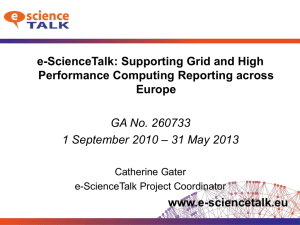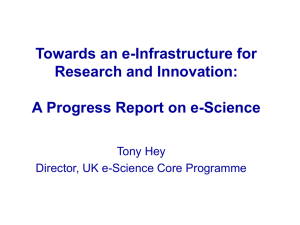E. Yen
advertisement
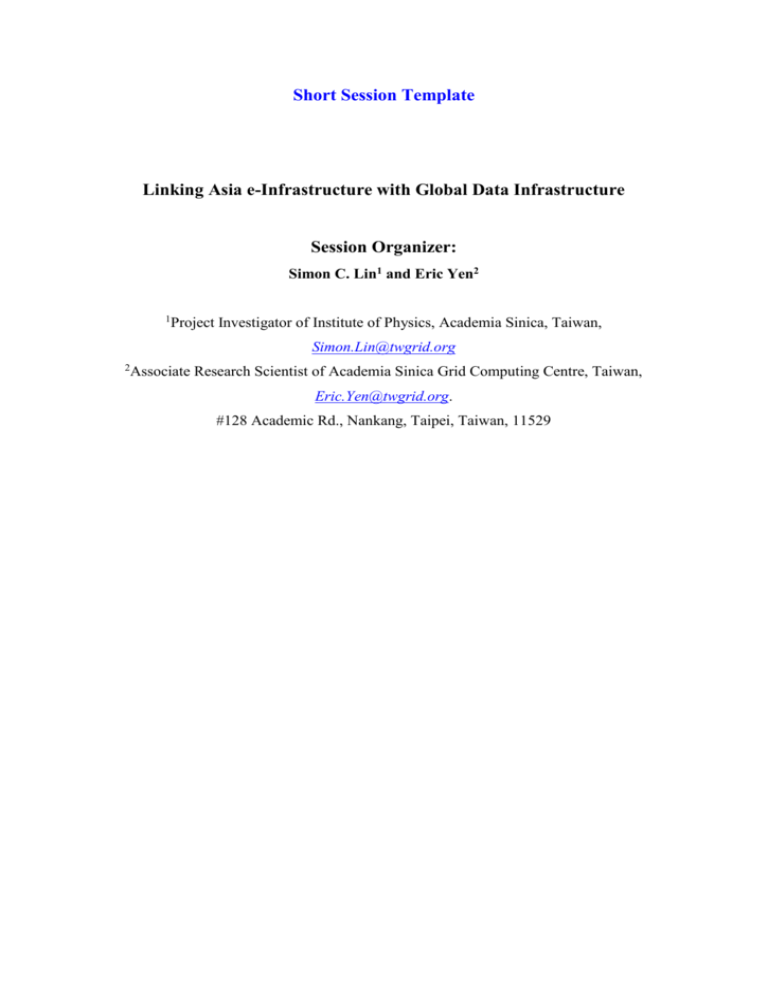
Short Session Template Linking Asia e-Infrastructure with Global Data Infrastructure Session Organizer: Simon C. Lin1 and Eric Yen2 1 Project Investigator of Institute of Physics, Academia Sinica, Taiwan, Simon.Lin@twgrid.org 2 Associate Research Scientist of Academia Sinica Grid Computing Centre, Taiwan, Eric.Yen@twgrid.org. #128 Academic Rd., Nankang, Taipei, Taiwan, 11529 Abstract Objectives of this session are to widen e-Science collaborations in Asia Pacific region by EGEE and EUAsiaGrid from 2004, and expedite regional focused data infrastructure development in the next 5 years. In addition, ways to link with global data infrastructure (GDI) by orchestrating region-based, domain-specific data sources and Grid/Cloud e-Infrastructure is also addressed. Over the past 5 years, 31 sites of 14 countries in Asia Pacific region built up the gLitebased Grid e-Infrastructure under the framework of EGEE Asia Federation and EUAsiaGrid. With resources more than 11,000 CPU cores and 4 Petabyte storage, Asia partners contributed to the worldwide e-Science collaboration especially on disciplines of high-energy physics, life science, earth science, climate change and social simulation. Leveraging efforts of worldwide e-Science, Asia countries joined the great opportunities to leap dramatically and alleviated traditional barriers of regional collaborations. Focusing on region-specific studies such as seismology, climate changes and drug discovery for epidemic diseases, Asia pacific regional e-Science collaborations demonstrated the exploration of unique researches and values of data sharing over e-Infrastructure. e-Science is essentially changing the ways scientists conduct and share their work, the new research topic they could address, and the computing model they employ. Global data infrastructure (GDI) is emerging to support global collaborative researches, to make interdisciplinary knowledge discovery easier, and to have a reliable, scalable and sustainable data federation framework. While data is center in e-Science, GDI has to ensure the exchangeability, share, sustainability and re-purposing of the contents. In these sessions, fundamental issues of data federation and efforts to federate regionbased and domain-based data infrastructure would be addressed. Requirements analysis and functional design for GDI should be organized from now on. Agenda 1. EGI and Global Data Infrastructure – Steven Newhouse, project director of European Grid Infrastructure (EGI). 2. Standardization and global Grid/Cloud for GDI – Craig Lee, Chair of Open Grid Forum (OGF). 3. Federation of Global Seismic Data Centers - Bor-Shouh Huang, Institute of Earth Science, Academia Sinica, Taiwan. 4. Linking Life Science Resources – Ying-Tar Wu, Genomic Research Center, Academia Sinica, Taiwan. 5. Probing Environmental Changes from Global Data Infrastructure - Chaun-Yao Lin, Research Center on Environmental Changes, Academia Sinica, Taiwan

